#PLS IM NEW TO CRITICAL ROLE
Explore tagged Tumblr posts
Text
The Fakenames are the Tal'dorei Council of Mentopolis. Don't @ me I'm right
#do you see my vision??#'do YOU know the tal'dorei council? who is on the tal'dorei council'#is giving the same energy as:#'stacy fakename! are you not joanna fakename? which fakename are you!'#and they just keep getting invoked until eventually they meet the real fakenames#also im hearing 'stacy fakename? joanna fakename? imelda pulse!' in dr doofenshmirtz's PERRY the platypus!! voice#anyways the council of tal'dorei my loves#and everyone pls go watch mentopolis its my new favourite thing#mentopolis#dimension 20#critical role#vox machina#the mighty nein#cr2#d20#dropout tv#d20 mentopolis#andis thought geyser
48 notes
·
View notes
Text
Reality Shifting and Race Changing Explained: A Deep and Comprehensive Analysis of the Practice through the Perspective of a Person of Color.
Introduction :
Reality shifting, a practice where individuals consciously move their awareness to alternate realities or dimensions, has gained significant popularity and attention. Within this phenomenon, race changing—where shifters assume a different racial identity in their Desired Reality (DR)—has become a particularly contentious topic. Proponents of race changing see it as a way to explore different perspectives, foster empathy, and experience personal growth. However, critics raise concerns about cultural appropriation, identity integrity, and ethical implications. This essay will delve into the shifter's perspective and debunk arguments against race changing in reality shifting, examining the diverse viewpoints and underlying controversies.
Disclaimer : before interacting pls read the entire post carefully if you do not understand a part of it do not hesistate to tell me and i would gladly explain you in more details.
And as the title says im a person of color (POC) so i will give my opinion on the matter. I am lowkey (more high key lol) pissed that i see white people telling and talking about it as if they opinion is law its time you let people directly concerned by the matter speak on a subject that concerns them.
Taglist of people who might be interested in this post that i will update progressively i will also at the end provide a pdf version of the document if this post reaches 100 reactions if it reaches 150 to 200 i will also provide the one against age changing) :
@shiftinghoe @shiftersroom @leydenkilgore @jolynesmom @shiftinginferno @norumis @angelscatastrophe @thanossnap
My Age changing Post for those interested
Masterlist
Part I: The Shifter's Perspective
A-Immersive Nature of Reality Shifting
Reality shifting goes beyond elaborate daydreaming or role-playing. It's a full-fledged immersive experience where individuals become their "Desired Reality" (DR) selves entirely. This deep embodiment isn't just physical; it encompasses cultural, emotional, and even historical elements.
Shifters often perceive themselves with entirely different physical characteristics in their DR. This goes beyond appearance – they feel comfortable and familiar in their new bodies, experiencing unique sensations and abilities tied to their DR race. Imagine an East Asian shifter feeling their epicanthic folds affecting their vision or an Afro-Caribbean shifter experiencing the textures of their hair and the specific needs of their skin.
But it's not just physical. Shifters become integrated members of their DR culture. They might find themselves fluent in the language, complete with cultural nuances and dialects. They possess an intrinsic understanding of traditions and social norms, not just intellectually, but on a lived level. Family histories, community connections, and social networks become as real and meaningful as those in their original reality.
Perhaps the most profound aspect is the emotional and psychological alignment. Shifters report feeling emotions differently based on their DR cultural background. Their worldview, values, and beliefs shift to reflect their new identity, offering unique perspectives. Many even have a full set of memories associated with their DR life, from childhood experiences to major events.
Shifters don't just inhabit a new identity; they become part of a complex historical and societal narrative. They understand the weight of historical events that shaped their DR community and experience firsthand the societal advantages or disadvantages of their DR race. They feel a deep sense of cultural pride alongside the challenges and discrimination that may come with it.
For example, a Japanese shifter might not only speak the language fluently but also understand the intricacies of keigo and feel the emotional weight of concepts like "gaman" or "uchi-soto." They could have memories of local festivals, the excitement of catching goldfish, or the solemnity of a New Year's visit.
Similarly, a Latinx shifter might effortlessly switch between languages, understand the cultural significance of quinceañeras, and feel a deep connection to their abuela's traditions. They could have vivid memories of family gatherings filled with traditional foods, laughter-filled conversations, and the warmth of close family bonds.
This immersive experience allows shifters to see the world through a completely different lens, gaining insights otherwise impossible. In their DR, their new identity isn't a costume – it's as authentic and valid as their original self. This creates a profound sense of belonging and allows them to explore different aspects of identity in a meaningful way. This depth of experience is what proponents of race changing in reality shifting often highlight as a potential benefit.
B-Personal Growth and Empathy Development
Reality shifting, particularly when it involves changing race, offers a powerful pathway for personal growth and empathy development. Proponents believe this to be one of its most valuable benefits. Here's a breakdown of its potential:
Expanded Perspective: Shifters inhabit a different racial identity, gaining visceral, firsthand experiences. Imagine a Black shifter feeling the sting of racism, or an Asian shifter navigating the pressures of the "model minority" stereotype. This fosters a deeper understanding of racial dynamics beyond textbook knowledge.
Cultural Competence: Shifters become immersed in a new cultural context, enhancing their cultural competence. They gain insights into cultural nuances, values, communication styles, and nonverbal cues. For instance, a shifter embodying a Middle Eastern identity might understand the significance of hospitality, appreciating the cultural roots of seemingly excessive generosity.
Challenging Biases: The immersive nature of shifting exposes personal biases. Shifters confront and work through unconscious biases and stereotypes that may seem harmless from the outside, but feel hurtful or limiting from a different perspective. This uncomfortable process can be ultimately transformative.
Emotional Intelligence: Experiencing life through a different racial lens boosts emotional intelligence. Shifters develop empathy for the struggles and joys specific to different races, better understand emotional cues across cultures, and gain enhanced self-awareness through reflecting on their reactions in their new identity.
Social Justice Awareness: Shifters often report a heightened commitment to social justice and equity. Experiencing discrimination firsthand motivates them to become allies in their original reality. Understanding privilege (or lack thereof) associated with different races fosters nuanced discussions about systemic inequality.
Personal Identity Exploration: Race changing in shifting can prompt deep reflection on personal identity. Shifters might question aspects of their original identity, explore their cultural heritage and family history, and gain a greater appreciation for the fluidity and constructed nature of racial categories.
Linguistic and Cognitive Benefits: Shifters who become fluent in new languages experience cognitive benefits like enhanced cognitive flexibility from thinking in different linguistic frameworks and improved problem-solving skills as they navigate cultural and linguistic differences.
Artistic and Creative Inspiration: The rich experiences gained through race changing can serve as a wellspring of artistic and creative inspiration. Writers might create more authentic characters, while visual artists gain new perspectives on color, form, and cultural symbolism.
Professional Development: Insights gained through race changing can translate into professional growth. Shifters develop a stronger ability to work in diverse teams, enhance their cross-cultural communication and negotiation skills, and gain a deeper understanding that can be valuable in multicultural environments.
Healing and Trauma Processing: In some cases, embodying different racial identities has helped shifters process personal or intergenerational trauma. For instance, a shifter with a family history of racial oppression might find healing in embodying an identity free from that specific trauma. Conversely, embodying an identity that has experienced historical trauma might help shifters connect with and process their own unrelated traumatic experiences.
Part II: Debunking Arguments Against Race Changing
A-Cultural Appropriation
One of the primary arguments against race changing in reality shifting is that it constitutes cultural appropriation. This issue is complex and sensitive, requiring careful consideration.
Cultural appropriation involves adopting elements from one culture by members of another, often without a full understanding or respect for the original culture. This practice is typically characterized by a power imbalance, where the appropriating group holds more social, political, or economic power than the culture being appropriated. It also involves a lack of attribution, where the source of cultural elements is not acknowledged, leading to stereotyping and commodification of cultural symbols, often out of context and for profit.
Applying this argument to reality shifting, critics assert that when individuals assume a different racial identity in their desired reality (DR), they may trivialize the lived experiences of that racial group. They argue that such individuals might cherry-pick enjoyable aspects of the culture while avoiding its challenges and potentially reinforcing stereotypes or misconceptions about the culture.
However, several counterarguments challenge this perspective. Many shifters approach race changing with the intention of understanding and empathizing with different racial identities, rather than exploiting them. The immersive nature of shifting often involves a deep engagement with the culture, as opposed to the superficial adoption of isolated elements.
Moreover, cultural appropriation typically involves a dominant culture taking from a marginalized one, but in shifting, this power dynamic isn’t present. Shifters embody the new identity fully, integrating their experiences into the fabric of the DR, which can make their engagement more authentic.
Unlike typical cases of cultural appropriation, shifters often report experiencing both the positive and negative aspects of their new racial identity, including potential discrimination and societal challenges. This level of immersion extends far beyond wearing traditional clothing or using cultural symbols, as it involves a comprehensive engagement with the culture's values, traditions, and worldview.
Reality shifting is a personal and introspective practice, usually conducted privately or in small groups, rather than as a public display that might perpetuate stereotypes or commercialize the culture. This personal and nuanced approach differentiates it from more harmful forms of cultural appropriation seen in popular culture or commercial contexts.
Despite these counterarguments, there are still ethical concerns to consider. The ability to "opt out" of a racial identity at will is a privilege not available to those who live that identity full-time. There is also a risk of oversimplification or misrepresentation, even with the best intentions. The personal nature of shifting does not negate the potential for internalized stereotypes or biases to influence the experience.
Instead of viewing race changing in shifting as clear-cut cultural appropriation, it might be more accurate to see it as a complex form of cultural engagement. This practice has the potential for both positive outcomes, such as increased empathy and understanding, and negative outcomes, like reinforcing stereotypes or trivializing experiences. It requires careful reflection and ethical consideration from practitioners and might be evaluated on a case-by-case basis, considering the shifter's intent, approach, and outcomes.
The argument that race changing in reality shifting constitutes cultural appropriation could be seen as a false analogy fallacy, inaccurately equating the personal, immersive, and often respectful experience of shifting with the exploitative and superficial nature of cultural appropriation as traditionally understood. Some proponents suggest that, when conducted respectfully and thoughtfully, race changing in shifting could be seen as a form of cultural exchange rather than appropriation. This perspective posits that the immersive nature of shifting fosters genuine understanding and appreciation, with shifters often feeling a responsibility to respect and honor the cultures they embody. The insights gained can contribute to more meaningful cross-cultural dialogue and understanding in the shifter's original reality.
In conclusion, while the argument against race changing in reality shifting raises important ethical considerations, the issue is more nuanced than it might initially appear. The deeply personal and immersive nature of shifting, coupled with the often sincere intent of practitioners to gain understanding and empathy, sets it apart from more straightforward cases of cultural appropriation. Nevertheless, it remains crucial for shifters to approach the practice with respect, self-reflection, and a willingness to grapple with its complex ethical implications.
B-Fetishization
Another significant criticism of race changing in reality shifting is that it may lead to or represent a form of racial fetishization. This concern is both sensitive and complex, and warrants a thorough examination.
Racial fetishization involves reducing individuals to stereotypical racial characteristics, objectifying people based on their race or ethnicity, and exoticizing racial features or cultural elements. Often, though not always, it includes a sexual component. Critics argue that race changing in shifting might encourage shifters to focus on stereotypical or exoticized aspects of a race, leading to a superficial engagement with racial identity that is more fantasy than reality. This practice could potentially reinforce harmful stereotypes or racial preferences.
However, several counterarguments challenge this perspective. Many shifters who engage in race changing are not primarily motivated by sexual desire or attraction to stereotypical racial attributes. Their goal is often to understand and embody the full spectrum of experiences associated with a different racial identity, rather than to indulge in fantasy or stereotypes. The immersive nature of reality shifting encourages shifters to deeply engage with and appreciate the culture they are exploring. This process frequently fosters empathy and understanding, rather than objectification, as shifters report experiencing both positive and negative aspects of their new racial identity, extending beyond surface-level engagement.
Additionally, many shifters approach race changing as a means of personal growth, aiming to challenge their own biases and expand their worldview. This experience often leads to increased cultural sensitivity and awareness, rather than reinforcing stereotypes. In their desired reality (DR), shifters often experience a fully realized and complex identity that includes family histories, cultural practices, societal challenges, and individual personality traits, going far beyond mere racial characteristics.
Despite these counterarguments, it is important to acknowledge potential risks. Shifters might unknowingly bring racial stereotypes or biases into their DR experiences. There is also a risk of focusing on more "appealing" aspects of a racial identity while downplaying its challenges or complexities. The ability to "try on" different racial identities at will is a privilege that could lead to a form of racial tourism if not approached thoughtfully.
From a psychological standpoint, the experience of race changing in shifting could be seen as a form of identity exploration rather than fetishization. It serves as an exercise in perspective-taking and empathy development and provides an opportunity to confront and work through internalized racial biases.
Culturally, it is worth considering whether race changing practices in shifting might lead to more nuanced representations of diverse racial identities in media and art, foster more open dialogue about race and identity in society, or risk oversimplifying complex racial issues.
Ethically, shifters should be encouraged to reflect critically on their motivations and experiences, seek diverse perspectives and real-world knowledge about the races they embody in their DR, and be mindful of the line between appreciation and fetishization. The argument that race changing in reality shifting constitutes fetishization could be seen as a straw man fallacy, as it misrepresents the shifters' intentions and the nature of their experiences, reducing a complex and often empathetic practice to a simplistic and objectifying one.
Some proponents argue that race changing in shifting could help deconstruct harmful racial categories by highlighting the constructed nature of race, encouraging people to see beyond racial stereotypes, and fostering a more fluid understanding of identity. Comparing this practice to other activities, such as actors portraying characters of different races, virtual reality experiences designed to foster racial empathy, or imagining oneself in someone else’s shoes through literature or film, reveals that race changing in shifting may differ fundamentally from these practices in its approach and intent.
In conclusion, while the criticism of fetishization raises important concerns about the potential risks of race changing in reality shifting, a closer examination reveals a more nuanced picture. The deeply personal and often transformative nature of these experiences, combined with the typical intent of fostering understanding and empathy, sets it apart from more straightforward cases of racial fetishization. Nevertheless, it is essential for shifters to approach the practice with self-awareness, respect, and a commitment to genuine cultural engagement rather than superficial or stereotypical representations.
C-Race Changing is Racist
The argument that race changing in reality shifting is fundamentally racist is a serious allegation that requires careful examination. This perspective is based on several concerns: it may trivialize the real struggles and discrimination faced by racial minorities, allow individuals to "play" at being another race without encountering the associated societal challenges, perpetuate the idea that race is something that can be donned or discarded at will, and reinforce the notion that race is merely about physical characteristics or stereotypical behaviors. This criticism often stems from worries about cultural insensitivity, fears of minimizing systemic racism, and the historical context of racist practices such as blackface and yellowface.
However, this argument can be contested on multiple grounds. Firstly, many shifters engage in race changing not to mock or belittle other races but to gain a deeper understanding and empathy for those experiences. The immersive nature of shifting often results in increased awareness of racial issues and a stronger commitment to anti-racism in the shifter's original reality. Furthermore, shifters in their desired reality (DR) often experience life as an integrated part of the culture they embody, including facing discrimination and navigating societal challenges associated with that racial identity. This depth of experience goes beyond superficial engagement.
Additionally, race changing can lead to significant personal transformation. Many shifters report profound growth, challenging their own biases and increasing their cultural competence. These experiences foster a deep sense of connection and solidarity with different racial groups. Race changing could also be viewed as an immersive form of education about racial experiences, potentially offering more impactful learning than traditional methods.
Despite these counterarguments, it is crucial to acknowledge potential issues. Shifters have the privilege of opting out of their new racial identity and returning to their original reality, a luxury not available to those who face racism daily. There is also a risk of oversimplifying complex racial experiences into simplified narratives. Without proper reflection, shifters might misuse or misrepresent aspects of the racial identities they embody.
To address these concerns, shifters engaging in race changing should approach the practice with humility and a willingness to learn. Complementing their shifting experiences with real-world education about racial issues and using insights gained to actively combat racism in their original reality can help mitigate potential problems. Critical reflection on their experiences and motivations is also essential.
From a psychological perspective, race changing in shifting can be seen as a form of perspective-taking, which has been shown to reduce prejudice, an exercise in empathy development, and a way to confront and work through unconscious racial biases. Sociologically, it is worth considering whether widespread engagement in race changing might lead to increased racial empathy, contribute to a more nuanced understanding of race as a social construct, or challenge existing racial categories.
A comparative analysis with other practices such as diversity training programs, role-playing exercises in anti-racism workshops, and the concept of "passing" in racial identity reveals that race changing in shifting might differ fundamentally in its approach and intent. The argument that race changing is inherently racist may be seen as a hasty generalization fallacy, drawing broad conclusions based on limited understandings of shifters' experiences and motivations.
Some proponents argue that, when approached thoughtfully, race changing in shifting could be an antiracist practice by fostering a deeper understanding of diverse racial experiences, motivating action against racism in the shifter’s original reality, and challenging fixed racial categories. Considering how race changing intersects with other aspects of identity, such as gender, class, or sexuality, further complicates the discussion and could lead to a more nuanced understanding of intersectional identities.
In conclusion, while the argument that race changing in reality shifting is inherently racist raises important ethical concerns, a closer examination suggests a more complex picture. The potential for increased empathy, understanding, and antiracist action indicates that, when approached thoughtfully and ethically, race changing in shifting might contribute to combating racism rather than perpetuating it.
Part III: Community Dynamics :
A. Shiftok Culture and Hypocrisy
The community of shifters on platforms like Shiftok has become a significant space for discussing and sharing experiences related to reality shifting. However, this community is often marked by striking inconsistencies in its attitudes and practices, particularly when it comes to race changing. These inconsistencies reveal underlying biases and a selective application of ethical standards within the community.
One of the most glaring examples of this hypocrisy is the community's disparate treatment of shifts involving fictional races versus real-world racial identities. Users enthusiastically support and celebrate shifts into races from popular fiction, such as elves from "Lord of the Rings" or Veela from "Harry Potter." These shifts often involve adopting stereotypical characteristics of these races, such as ethereal beauty or magical abilities, without any criticism. Similarly, shifts into anime characters, even when these characters are explicitly Japanese or of other Asian ethnicities, are widely accepted and applauded.
In stark contrast, when a user mentions shifting to experience life as a different real-world race - for example, a white person shifting to be Black, or an Asian person shifting to be Latino - they often face harsh criticism and accusations of racism or cultural appropriation. This double standard extends to cultural practices as well. Users might criticize someone for shifting to experience a traditional Japanese tea ceremony as a Japanese person, calling it appropriation. However, they remain silent when shifters adopt fantastical versions of cultural practices, such as magical rituals in The Vampire Diaries Universe, which are often based on real-world cultural elements such as Hoodoo and Voodoo.
The inconsistency becomes even more apparent when considering shifts into races that face oppression or discrimination in their fictional universes. Shifting to be a Na'vi from "Avatar," who face colonization and violence from humans, or becoming a vampire who must hide from hunters and deal with societal prejudice, are widely accepted and even romanticized. These shifts often involve experiencing fictional forms of racism or oppression, yet they don't receive the same scrutiny as shifts involving real-world racial experiences.
This romanticization of struggle is particularly problematic. Users might enthusiastically describe the thrill of being a hunted vampire or the nobility of fighting against oppression as a Na'vi, while simultaneously criticizing those who wish to explore real-world experiences of discrimination through shifting. This glamorization of fictional oppression trivializes real-world struggles and reveals a lack of critical thinking about the implications of different types of identity shifts.
The community's acceptance of shifts into historical periods further highlights this hypocrisy. Shifting to experience life in different historical eras, which inevitably involves a change in cultural context, is generally supported. For instance, shifting to be a noble in Victorian England is rarely questioned, while shifting to be a person of color in modern-day America might be condemned. This inconsistency reveals a troubling bias in how the community views and values different cultural and racial experiences.
Perhaps the most striking example of this double standard is the widespread acceptance of shifting to become a Na'vi from the movie "Avatar." This shift involves taking on a completely different racial identity, often with spiritual and cultural elements inspired by real-world Indigenous cultures. Yet, this is rarely criticized, while shifting to be an actual Indigenous person would likely face significant backlash.
These inconsistencies in the Shiftok community undermine the credibility of criticisms against race changing and point to a need for more consistent and reflective ethical standards within the shifting community. They reveal that many users are more comfortable with the idea of exploring different identities and experiences of oppression when they're framed as "fictional," even though the immersive nature of shifting means these experiences are just as real to the shifter as any "real-world" shift would be.
This hypocrisy not only stifles meaningful dialogue about race and identity within the context of shifting but also reflects broader societal discomfort with addressing real-world racial issues. It highlights the need for the shifting community to engage in more nuanced, thoughtful discussions about the ethics of identity exploration, the nature of reality in shifting, and the responsibilities that come with experiencing different racial and cultural perspectives.
B. Judgmental Attitudes and Ignorance
The shifting community, particularly on platforms like Shiftok, often displays a complex web of judgmental attitudes and ignorance about the nuances of shifting practices. This creates a challenging environment for shifters exploring different identities, especially when it comes to race changing. (in this part and all the other parts of this essay, “real world”=CR aka this reality ik they are no such thing as the “real world” but for the sake of the argument i employed that term).
Many users within the community are quick to condemn those who shift into different racial identities, particularly when these involve real-world races. This rush to judgment often stems from a superficial understanding of shifting practices and a lack of empathy for the motivations behind such explorations. Harsh comments, gatekeeping behaviors, and in extreme cases, online harassment, have become unfortunately common responses to shifters who engage in race changing.
However, this judgmental attitude is starkly contrasted by the community's acceptance and even celebration of shifts into fictional races or non-human identities. This inconsistency reveals a deep-seated ignorance about the nature of shifting and its implications. Users often justify their acceptance of shifts into fictional races like Elves or vampires from various mythologies by arguing that since these races are fictional, they're somehow "safer" or less problematic to explore. This reasoning, however, fundamentally misunderstands the core principle of shifting: that all realities, whether based on fiction or the "real world," are equally real and valid from the perspective of the shifter.
This ignorance leads to a troubling double standard. Shifters who explore the experiences of fictional races facing discrimination - like the Na'vi battling colonization or werewolves hiding from hunters - are often met with enthusiasm. The community readily engages with these narratives of struggle and oppression when framed in a fictional context. Yet, when shifters attempt to explore real-world experiences of racial discrimination, they face harsh criticism and accusations of appropriation or fetishization.
This attitude demonstrates a lack of critical thinking about the ethical implications of different types of shifts. The community fails to recognize that from the perspective of shifting theory, the distinction between "fictional" and "real-world" races becomes arbitrary. The experiences of discrimination, cultural immersion, and identity exploration are just as real and impactful for a shifter whether they're embodying a Na'vi or shifting into a different human race.
Moreover, this ignorance extends to a misunderstanding of the depth and complexity of shifting experiences. Many critics within the community underestimate how fully shifters can embody and experience a different identity, regardless of whether it's fictional or based on a real-world race. They often fail to grasp the profound impact these experiences can have on a shifter's perspective, empathy, and personal growth.
The judgmental attitudes and ignorance prevalent in the community have serious consequences. They stifle open and honest discussions about race and identity within the shifting context. Shifters who feel judged may withdraw from the community or hide their experiences, limiting opportunities for collective learning and growth. The hostile environment can discourage exploration of different identities, potentially limiting the personal growth and empathy development that shifting can facilitate.
Furthermore, this environment of judgment and ignorance often leads to the mischaracterization of shifting experiences. Complex and nuanced explorations of identity are frequently oversimplified or dismissed. The potential benefits of respectful identity exploration through shifting are overlooked, while stereotypes about shifting and shifters are reinforced.
To address these issues, there's a clear need for more education within the community about the nuances and complexities of shifting experiences. Promoting a deeper understanding of the psychological and experiential aspects of shifting could foster more empathy and less judgment. Creating spaces for open, non-judgmental discussions about controversial shifting practices could help combat ignorance and promote a more nuanced understanding of the ethical implications of different types of shifts.
By confronting these judgmental attitudes and areas of ignorance, the shifting community has the opportunity to create a more inclusive, understanding, and supportive environment. This could not only improve the experiences of individual shifters but also contribute to more nuanced and productive discussions about identity, race, and the ethics of shifting practices. Ultimately, addressing these issues is crucial for the growth and maturation of the shifting community as a whole.
C-Understanding Morality and Multiracial Identity in Shifting
The concept of infinite realities in shifting brings about profound implications for our understanding of morality and identity, particularly when it comes to race. Each Desired Reality (DR) has its own unique set of morals and cultural norms, presenting a challenge when applying Original Reality (OR) ethics to these varied experiences. This moral relativism in shifting creates a complex landscape where what is considered ethically acceptable in one reality may not hold the same value in another.
The shifting community's approach to fictional races inadvertently highlights this moral complexity. Many shifters enthusiastically embrace identities like Na'vi from "Avatar" or vampires from various mythologies, often without the same level of ethical scrutiny applied to shifts involving CR races. This discrepancy reveals a fundamental misunderstanding of the nature of shifting itself. If we accept the core principle that all realities are equally real and valid, then the distinction between "fictional" and "real-world" races becomes very blurry to a point where said distinction vanishes since what is fictional in this reality is 100% real in that DR.
This paradox becomes even more apparent when we consider that many of these fictional races face discrimination, oppression, or complex social challenges within their realities. Shifters who take on these identities are, in essence, experiencing forms of racism or societal prejudice, yet these experiences are often romanticized or seen as less problematic than explorations of real-world racial discrimination. The Na'vi fighting against human colonization or Mutants from the X-men hiding from societal persecution are, within the context of shifting, as real and significant as any historical or contemporary struggle against oppression.
The romanticization of these fictional races raises its own set of moral questions. For instance, the glorification/romanticisation of vampire culture in shifting could be seen as problematic on multiple levels. It potentially trivializes issues of consent and power imbalances, and could even be construed as a form of necrophilia, given the undead nature of vampires (vampires are dead not alive ergo necrophilia in a way. This argument that I use is to further emphasize the hypocrisy of the shifting community since yall wanna talk about fetishization and romanticisation). This level of ethical scrutiny is rarely applied to fictional race shifts, despite the community's readiness to criticize CR race changing on similar grounds.
For multiracial shifters, this moral landscape becomes even more complex. A multiracial individual might choose to shift to embody only one aspect of their racial heritage in their DR, reflecting their sense of connection and belonging to that part of their identity. This choice doesn't negate their other racial identities but rather reflects the fluid and personal nature of racial identity itself. However, the community's inconsistent approach to race in shifting can create additional challenges for these individuals. They may find themselves navigating not only their own complex identities but also the arbitrary distinctions and judgments imposed by the community.
The multiracial shifting experience underscores the limitations of rigid racial categorizations and highlights the need for a more nuanced understanding of race and identity within the shifting community. It challenges shifters to consider how their experiences across different realities might inform and expand their understanding of racial identity in their OR.
Moreover, the moral relativism inherent in shifting raises questions about the nature of ethical growth through these experiences. If a shifter encounters and adapts to vastly different moral frameworks across their DRs, how does this impact their core ethical beliefs? This moral fluidity could lead to a more nuanced and empathetic worldview, but it also risks ethical inconsistency or moral relativism taken to an extreme.
In conclusion, the intersection of morality and racial identity in shifting presents a rich area for exploration and discussion. It challenges our understanding of ethics, identity, and the nature of reality itself. By engaging with these complex ideas, the shifting community has the opportunity to foster more nuanced, empathetic, and inclusive approaches to race and identity. However, this requires a willingness to apply consistent ethical standards across all forms of shifting, whether they involve "real" or "fictional" races, and a commitment to deeper reflection on the moral implications of these profound experiences.
Conclusion :
Ultimately, we can argue that race changing in reality shifting isn't inherently problematic and can, in fact, be a powerful tool for personal and societal growth. The ability to experience life from diverse racial perspectives has the potential to challenge deeply ingrained biases, foster genuine empathy, and contribute to more nuanced discussions about race and identity in our society.
However, we must tread carefully to ensure that these practices do not veer into appropriation or fetishization. This requires:
Approaching race changing with respect, humility, and a genuine desire to learn.
Engaging in thorough self-reflection before, during, and after shifting experiences.
Complementing shifting experiences with real-world education about racial issues and histories.
Being mindful of the privilege inherent in being able to "opt out" of a racial identity.
Using insights gained from shifting to actively combat racism and promote understanding in one's original reality.
Fostering open, honest dialogues within the shifting community about ethics and best practices.
Developing clear community guidelines that address the complexities of race changing.
By maintaining this careful balance, race changing in reality shifting can serve as a unique and valuable tool for promoting intercultural understanding, challenging racial prejudices, and fostering a more empathetic and inclusive society. As with any powerful tool, its value lies not in the practice itself, but in how we choose to use it. With thoughtful consideration and ethical guidance, race changing in shifting has the potential to contribute positively to our ongoing dialogues about race, identity, and human experience.
#reality shifting#shiftblr#shifting#desired reality#shifting community#shifting realities#shifters#reality shift#reality shifter
462 notes
·
View notes
Text
How Did It End?
rafe cameron x reader social media au (might be a bit jj x reader aswell who knows)
Summary: Y/n L/n met Rafe Cameron at an after party of The Pogues two years ago. Y/n had been invited by one of her best friends; JJ Maybank the lead singer of the band. She forced her new co-star Cleo along with her. Both of them met someone that would change their life forever. Cleo met the bands guitarist Pope Heyward. Y/n had met Rafe Cameron. The brother of the drummers girlfriend. John B Routledge had met Sarah Cameron when The Pogues manager Kiara Carrera hired her for their first tour.
a/n: first social media au ever so pls be nice guys! also im absolutely winging this, have nothing planned out and dont even know if I'll be posting many chapters 😭 BUT we try anyway. Also want to give a bigbig shoutout and send so much love to all the obx smau creators that inspired me to actually make this so you all should definitely check these people out! @ghostofwriting (kildare split my beloved) @allertonhoe @murdockcastleslut @coffeebeanbabysdreams
masterlist
one - next

introductions
meet the cast of Dare Me:
Y/n L/n is an up and coming actress. She has played along side of many big names like Daniel Craig, Nicole Kidman, Hugh Jackman, Zendaya and many more! Currently she is on the horror/thriller show Dare Me in which she plays the role of Paige a university student that plays a game of truth and dare with her friends and all kinds of secrets, shames, and maybe even murders come out.
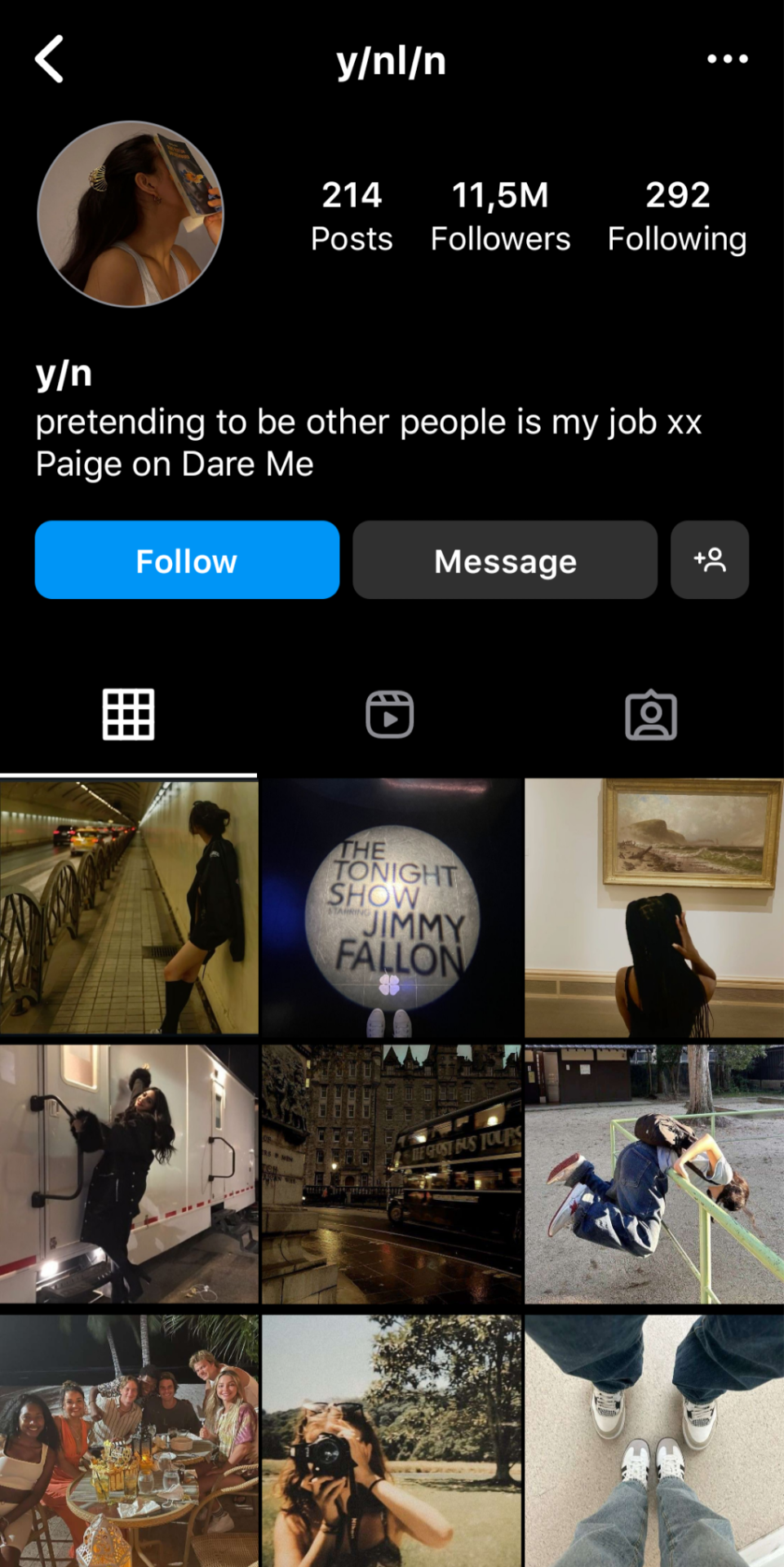
Cleo Anderson is a fenomenal actress and an even better friend to Y/n. Cleo and Y/n met each other while auditioning for Dare Me season 1 three years ago. Cleo plays Tara on the show, Paige's best friend. Thanks to Y/n dragging (she convinced Y/n to even go in the first place) her out to a show of The Pogues she met Pope Heyward. The two of them clicked instantly. They tried to be friends at first but their attraction/chemistry was too strong.
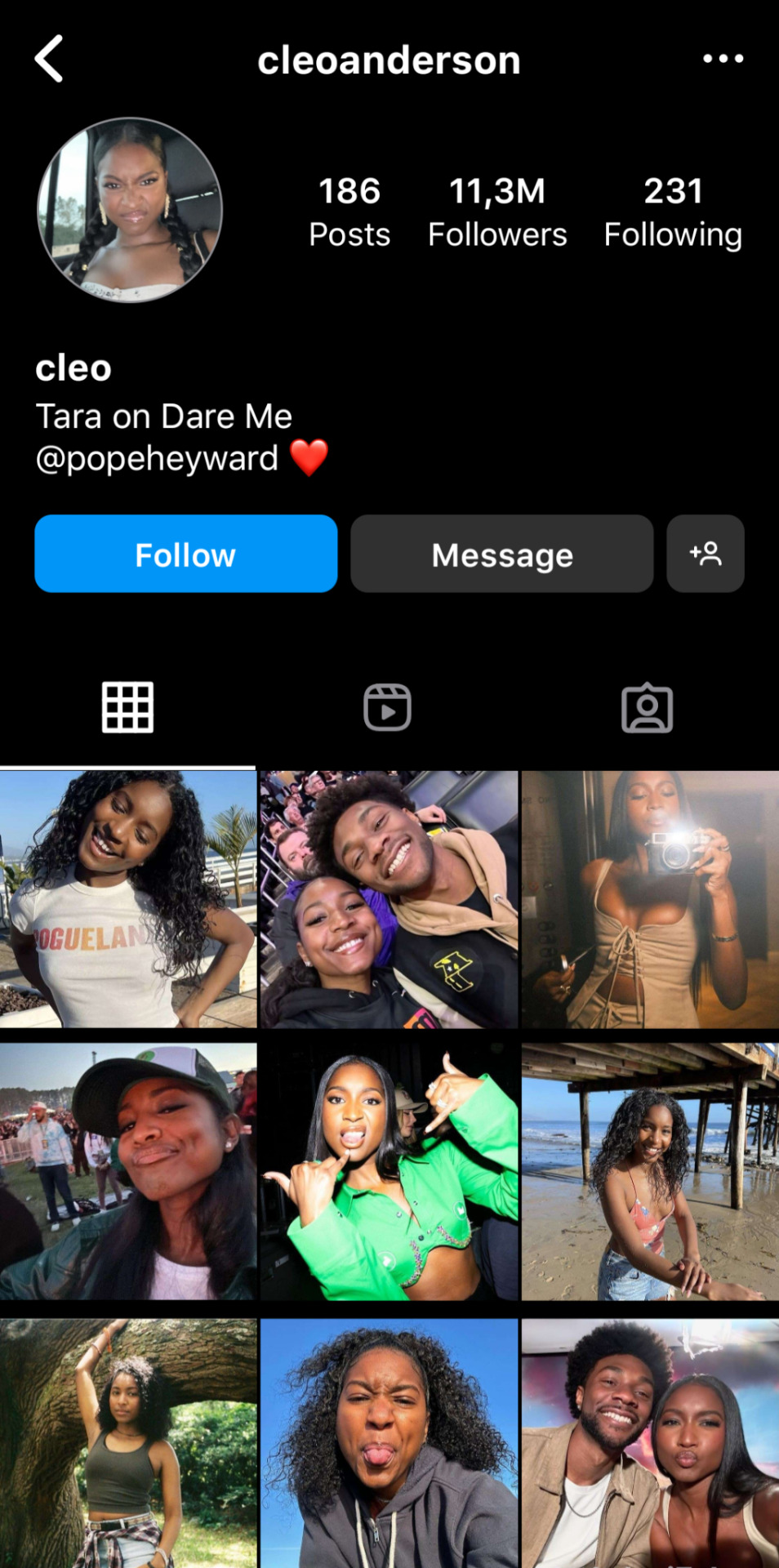
Topper Thornton is the newest addition to the Dare Me cast. This nepo baby scored the role of Lucas, who is Paige's new love interest. Rafe and Topper have been friends for years, well if you can call them friends, the two somehow always end up in arguments online.
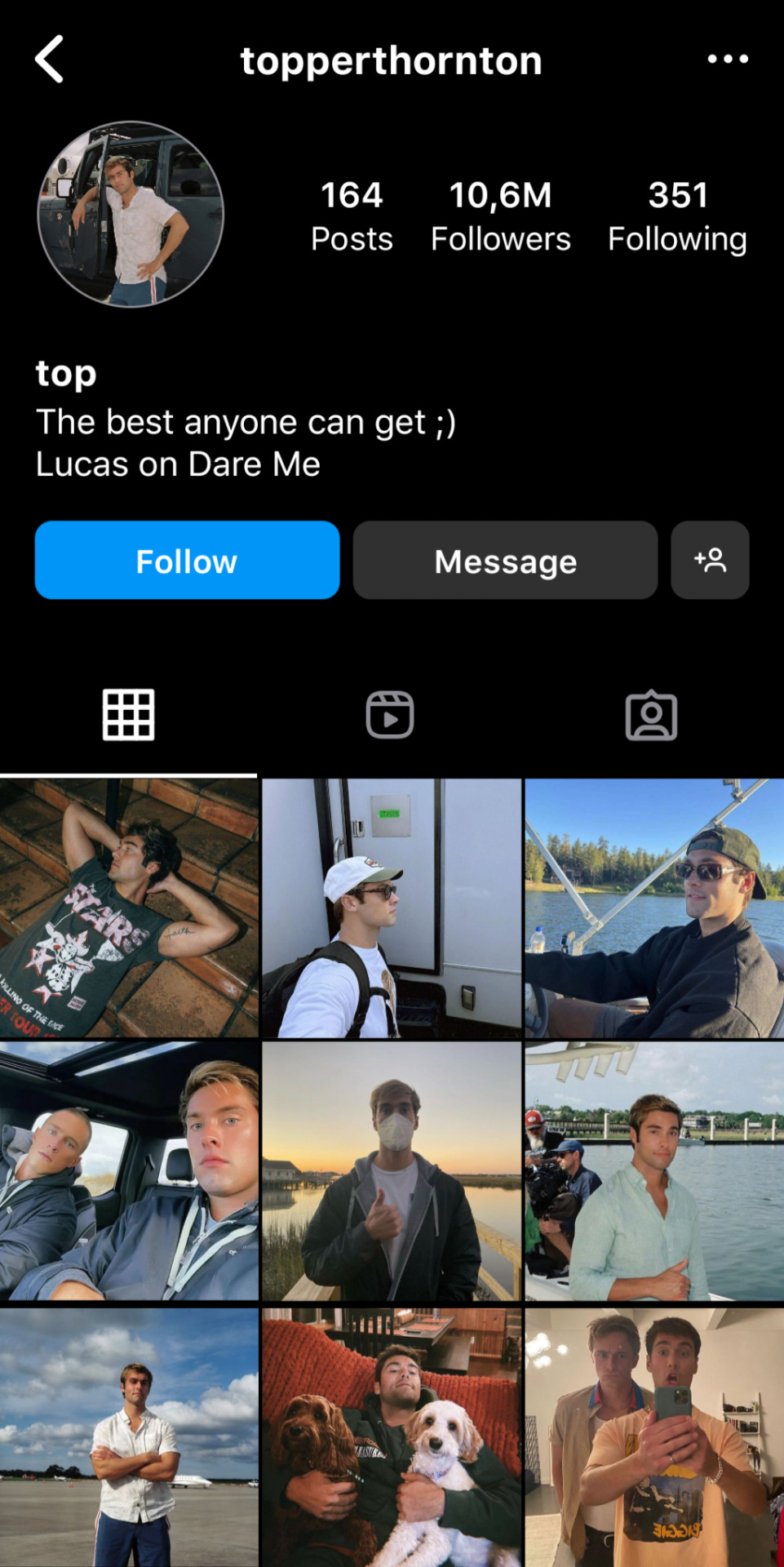

a/n: I hope this is making sense so far, im not sure if im loving this format but idk guys im trying 😭 I'll be posting The Pogues, The Camerons + Sofia and chapter 1 either today (its 2am help) or tomorrow! also am trying to have this fic be as inclusive as i can make it so if you have any tips/criticisms pls lmk!!
#rafe cameron x reader#rafe cameron imagine#rafe cameron social media au#outer banks smau#outerbanks x reader#outer banks x reader#obx x reader#obx smau#jj maybank x reader#jj maybank social media au#outer banks social media au#obx social media au#rafe x you#How Did It End? by fallingfavourites
111 notes
·
View notes
Text
i think she knows! | karina x fem!oc smau
meet the cast: series regulars!

synopsis. march shim and karina yu had been compared and pitted against each other for years, and the media even dubbed them as rivals simply because their careers were slightly similar. their professional lives cross when they’re both casted as leads in a new series, sparks flying both onscreen and off.
(oh—and march also runs a secret stan account for karina.)
warnings. language

— march shim!
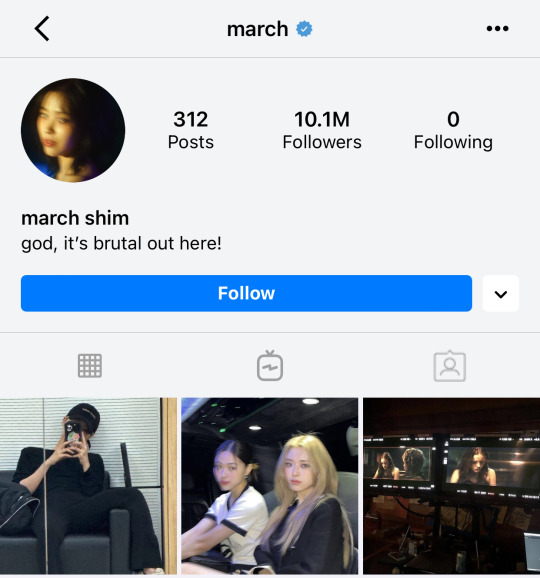
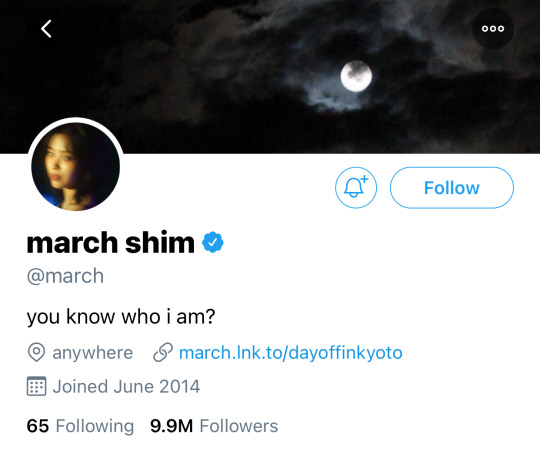
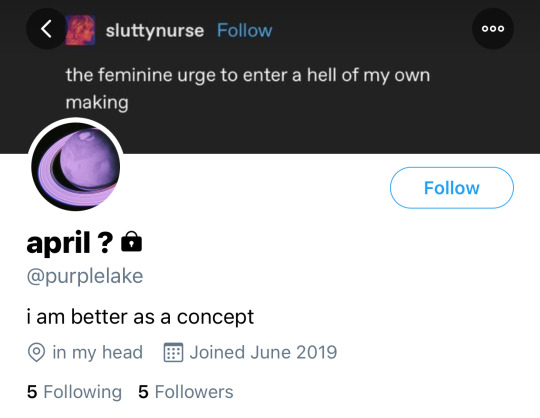
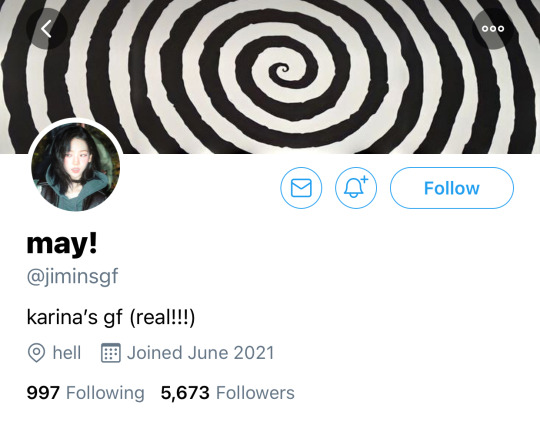
an actress/singer-songwriter.
she starred in her first role in a movie in 2016, and from there she quickly rose to fame after being taken under the wing of famous box office movie actor, wonwoo kim.
she occasionally releases music but has never toured. she had realeased two eps, an album, and a few singles.
she focuses mainly on acting and had become pretty popular despite only being in the industry for seven years.
the media pits her against karina yu, another singer-actress, since they are from different companies and have slightly similar careers. she doesn’t really care about the media creating a rivalry between them because she runs a stan account for karina
read march shim’s wikipedia page here!
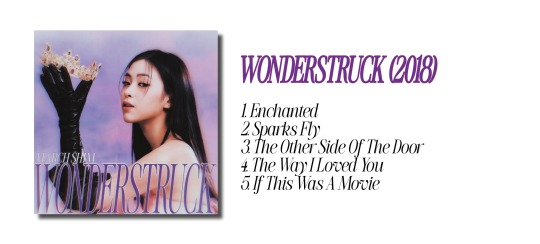
wonderstruck (2018) is march shim’s debut ep, released on may 8, 2018. her debut single off the ep was “the way i loved you”.
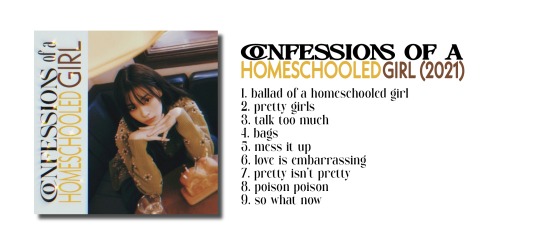
confessions of a homeschooled girl (2021) is march shim’s first album, released as a surprise for her fans on her birthday, november 17, 2021. included in the album is her single from the previous year, “pretty girls”, and a target exclusive version of the album included her single from the dead girl walking soundtrack, “brutal”.
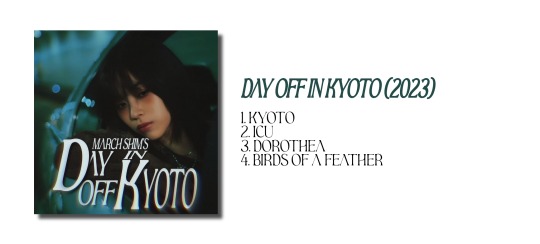
day off in kyoto (2023) is march shim’s second ep, released on november 23, 2024. the ep consists of four songs she wrote and recorded during her two-week vacation in kyoto. the last track of the ep was a song written for two friends of hers from the industry, who would then create a series with the same title, with shim as one of the principal cast.
the fans: archers 🏹

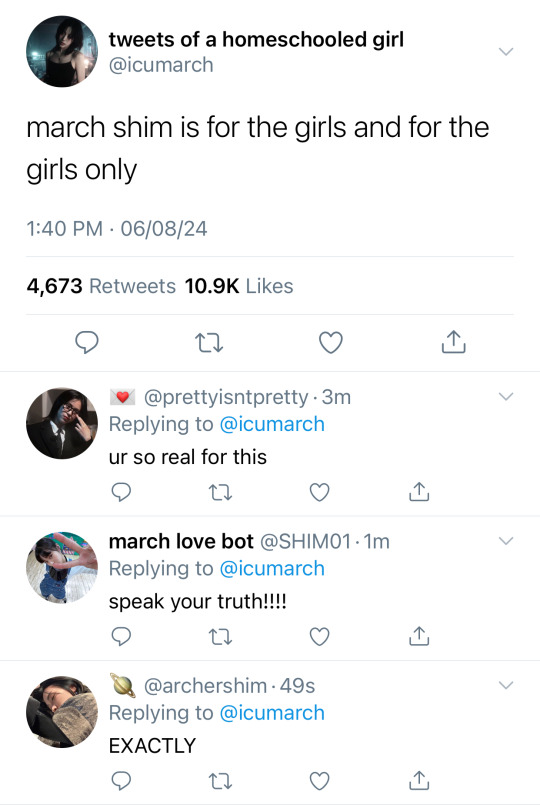
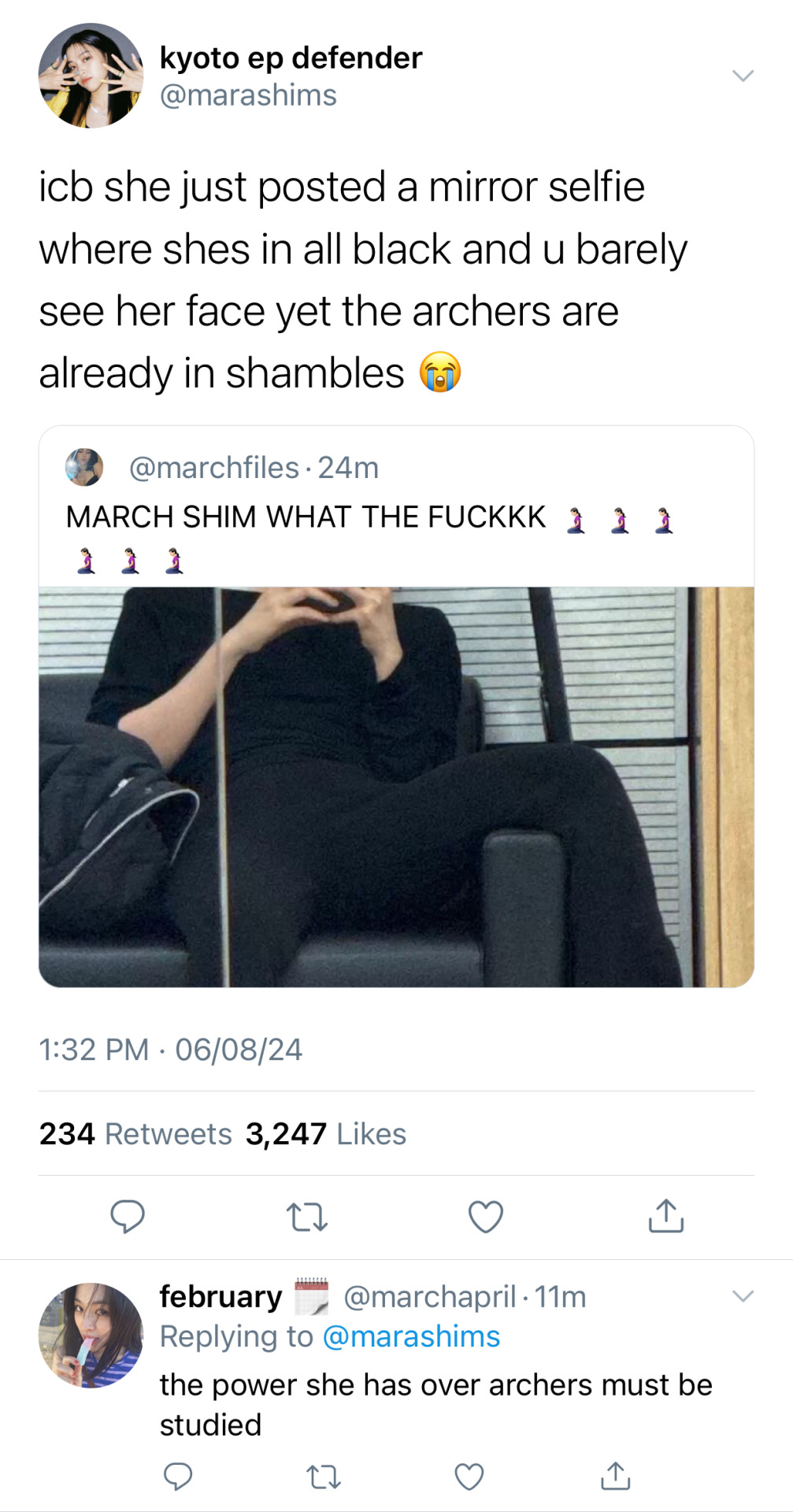

— karina yu!
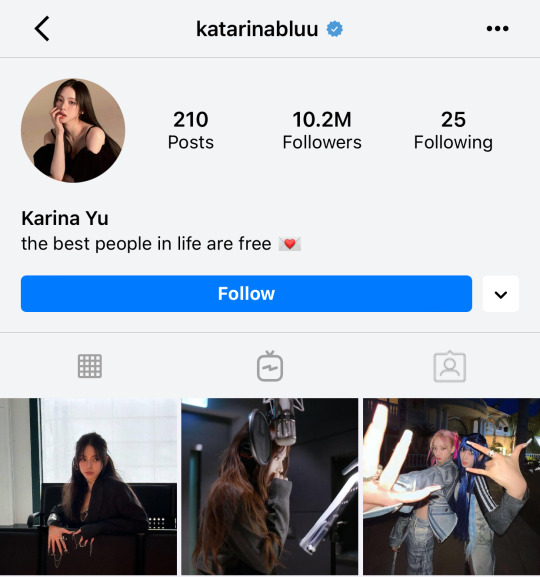
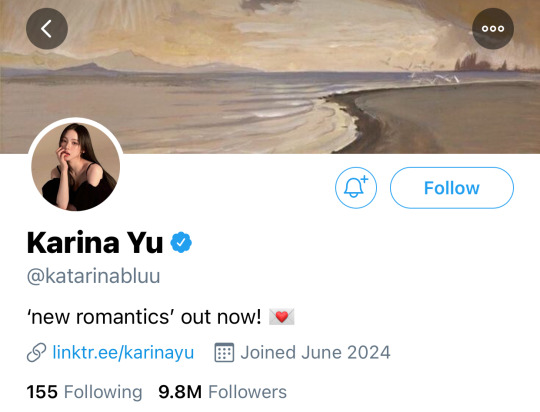
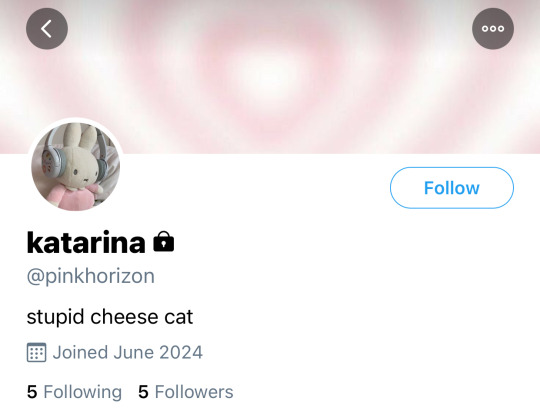
an actress/singer-songwriter.
starred in her first acting role in a tv show in 2015 for a minor role. was immediately casted in a lead role later that year for a different tv show of the same creators. her career went off from there.
she started a music career only in 2021, releasing her debut ep, and then a full album in 2023. people say she the potential to become the next "pop princess" but she says she has no plans in doing music full-time since she prefers acting more and music is just a side hobby.
has been pit against march shim since they both rose to fame at the same time, but she doesn’t really care about the supposed rivalry and respects march as an artist.
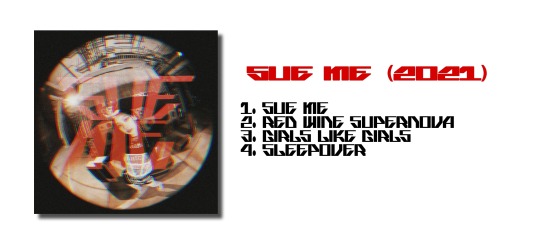
sue me (2021) is karina yu's debut ep, released on september 8, 2021. her debut single off the ep was the title track, written after her former manager had tried to sue her the year prior.
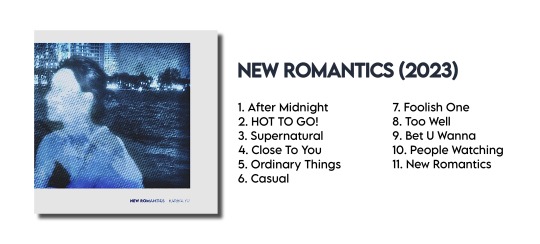
new romantics (2023) is karina yu's first album, released on november 14, 2023. the album had been critically acclaimed, with all songs debuting at the billboard hot 100 during its first week. while people assumed she'd be focusing on her music career after this album, she had quickly clarified that music was just her hobby and that she intends to still focus on her acting career.
the fans: loveyus 💌
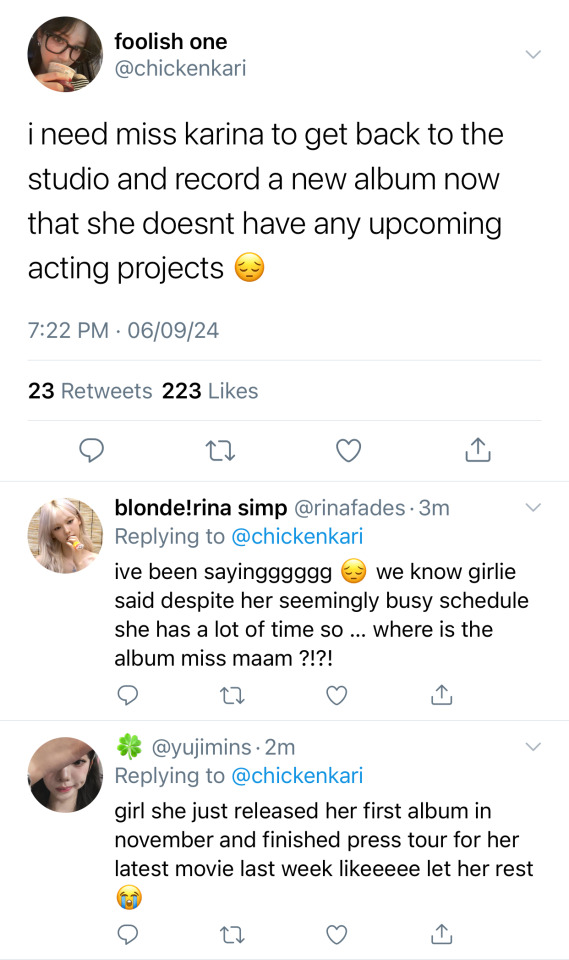
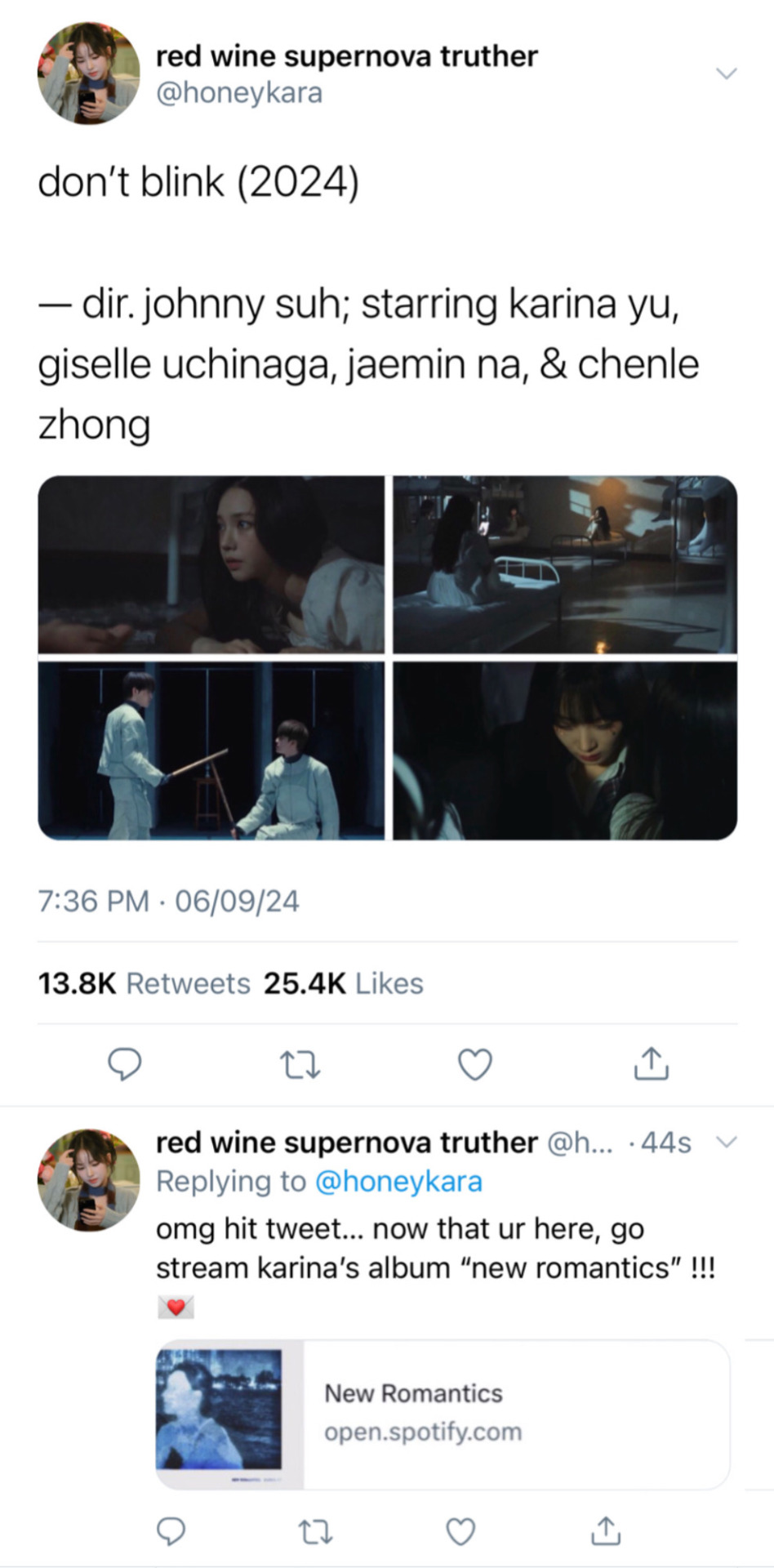
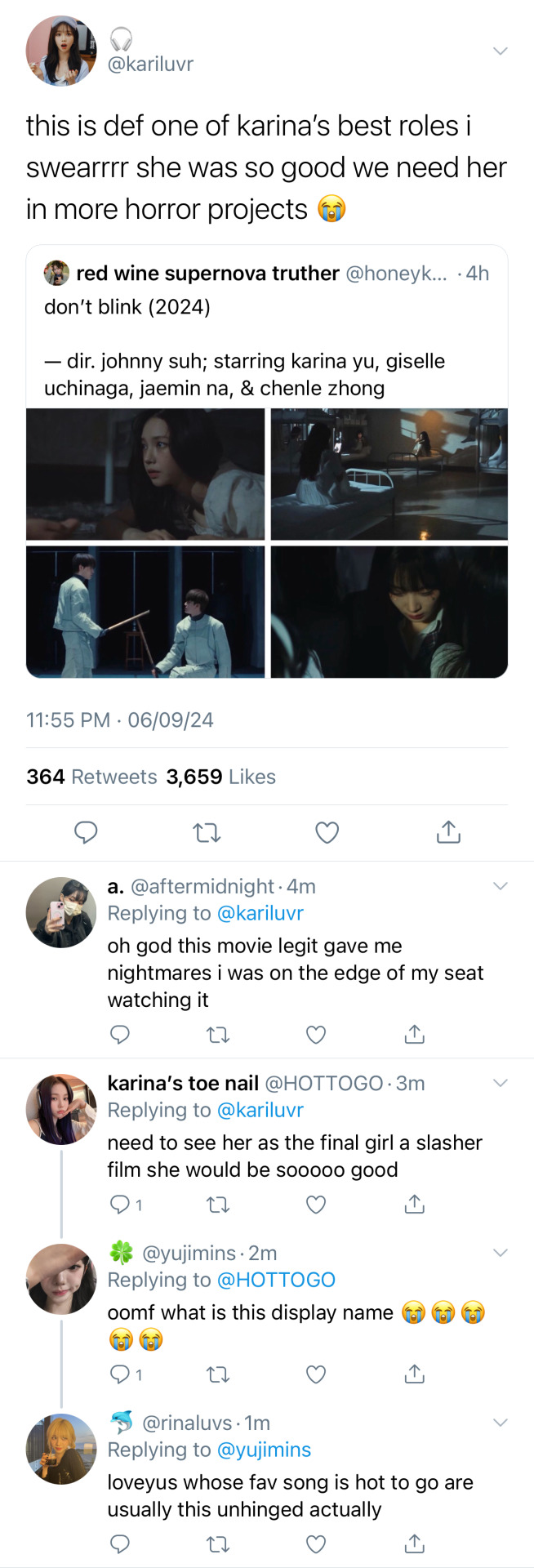


PREV | MASTERLIST | NEXT

notes.
pls read march’s wikipedia page (carrd) i spent a really long time making it and im rlly happy how it turned out HAHAHA
taglist for this au is still open!
reply in the main masterlist or send me a dm if you want me to use your user as a fan account in this smau!
taglist. @archivedmkl @yuyuy90 @linonyang
#karina x oc#karina social media au#karina smau#karina imagines#karina scenarios#karina fluff#karina angst#karina x reader#karina yu#yu jimin#aespa#aespa x reader#aespa smau#social media au#smau: i think she knows
57 notes
·
View notes
Text
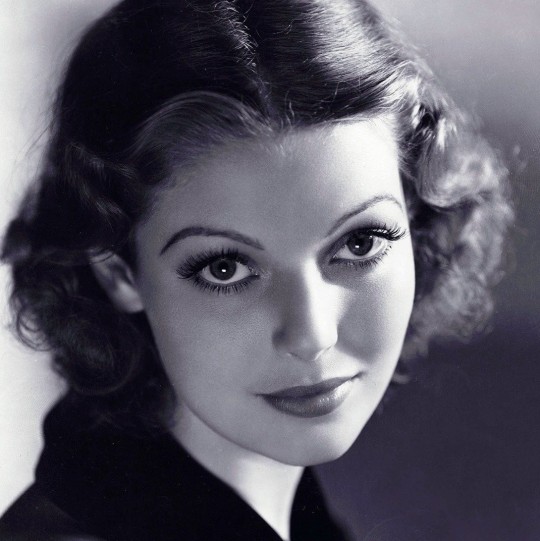
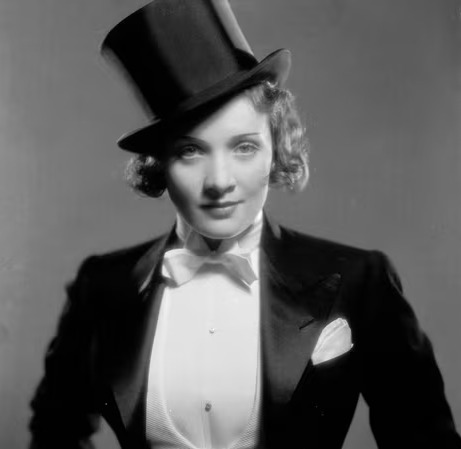
Propaganda
Loretta Young (The Farmer’s Daughter, The Stranger, Love is News)— Her cheekbones!! Her lips!! Her big eyes and small nose and not quite classical features!! The planes of her face hypnotize me and her smile clears my mind of anything else. She’s an interesting beauty, not a standard one, almost in a Mads Mikkelsen type way (I repeat: cheekbones). Also I’m begging people to watch The Farmer’s Daughter, a charming rom com where my babygirl Joseph Cotten falls through the ice while skating because he got distracted by how pretty she was, and where Loretta puts on a 40s-bad Swedish accent and runs for Congress! Girlboss!
Marlene Dietrich (Shanghai Express, Witness for the Prosecution, Morocco)—its marlene dietrich!!!! queer legend, easily the hottest person to ever wear a tuxedo, that hot hot voice, those glamorous glamorous movies.... most famously she starred in a string of movies directed by josef von sternberg throughout the 1930s, beginning with the blue angel which catapulted her to stardom in the role of the cabaret singer lola lola. known for his exquisite eye for lighting, texture, imagery, von sternberg devoted himself over the course of their collaborations to acquiring exceptional skill at photographing dietrich herself in particular, a worthy direction in which to expend effort im sure we can all agree. she collaborated with many other great directors of the era as well, including rouben mamoulian (song of songs), frank borzage (desire), ernst lubitsch (angel), fritz lang (rancho notorious), and billy wilder (witness for the prosecution). the encyclopedia britannica entry im looking at while compiling this propaganda describes her as having an “aura of sophistication and languid sexuality” which✔️💯. born marie magdalene dietrich, she combined her first and middle names to coin the moniker “marlene”. she was a trendsetter in her incorporation of trousers, suits, and menswear into her wardrobe and her androgynous allure was often remarked upon. critic kenneth tynan wrote, “She has sex, but no particular gender. She has the bearing of a man; the characters she plays love power and wear trousers. Her masculinity appeals to women and her sexuality to men.” in the 1920s she enjoyed the vibrant queer nightlife of weimar berlin, visiting gay bars and drag balls, and in hollywood her love affairs with men and women were an open secret. she was an ardent opponent of nazi germany, refusing lucrative contacts offered her to make films there, raising money with billy wilder to help jews and dissidents escape, and undertaking extensive USO tours to entertain soldiers with an act that included her a playing musical saw and doing a mindreading routine she learned from orson welles. starting in the 50s and continuing into the mid-70s she worked largely as a cabaret artist touring the world to large audiences, employing burt bacharach as her musical arranger.
This is round 2 of the tournament. All other polls in this bracket can be found here. Please reblog with further support of your beloved hot sexy vintage woman.
[additional propaganda submitted under the cut.]
Loretta Young:
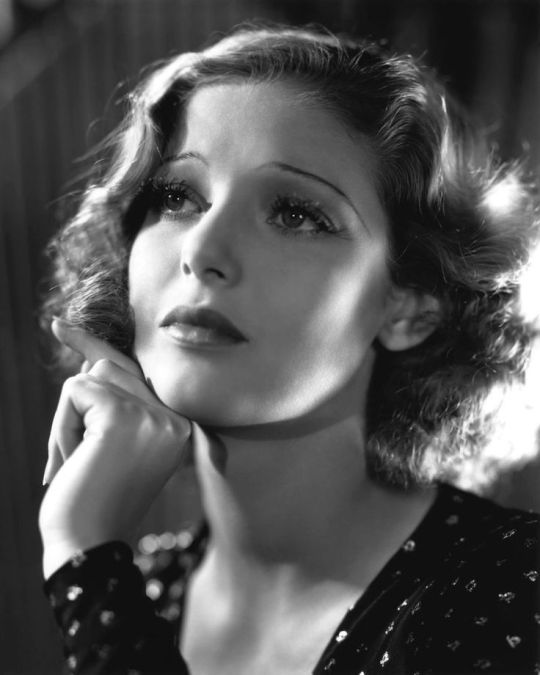
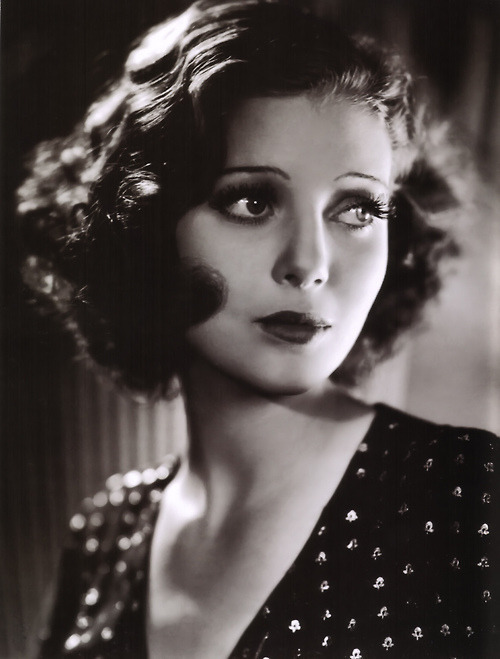
[additional propaganda submitted under the cut.]
"ms dietrich....ms dietrich pls.....sit on my face"
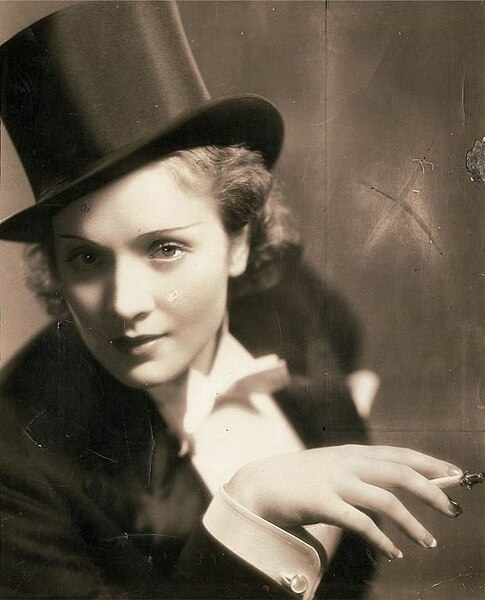
"First of all, there are those publicity photos of her in a tux. Second of all, I have never been the same since knowing that she sent copies of those photos to her Berlin lovers signed "Daddy Marlene." Not only is she hot in all circumstances, but she can do everything from earthy to ice queen. Also, she kept getting sexy romantic lead parts in Hollywood after the age of 40, which would be rare even now. She hated Nazis, loved her friends, and had a sapphic social circle in Hollywood. She also had cheekbones that could cut glass and a voice that could melt you."

Bisexual icon, super hot when dressed both masculine and feminine, lived up her life in the queer Berlin scene of the 1920s, central to the 'sewing circle' of the secret sapphic actresses of Old Hollywood, refused lucrative offers by the Nazis and helped Jews and others under persecution to escape Nazi Germany, the love of my life
Her GENDER her looks her voice her everything
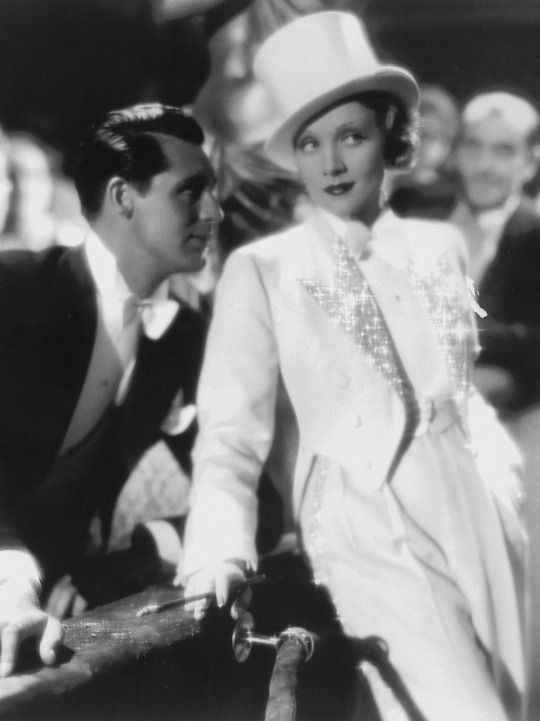
“In her films and record-breaking cabaret performances, Miss Dietrich artfully projected cool sophistication, self-mockery and infinite experience. Her sexuality was audacious, her wit was insolent and her manner was ageless. With a world-weary charm and a diaphanous gown showing off her celebrated legs, she was the quintessential cabaret entertainer of Weimar-era Germany.”
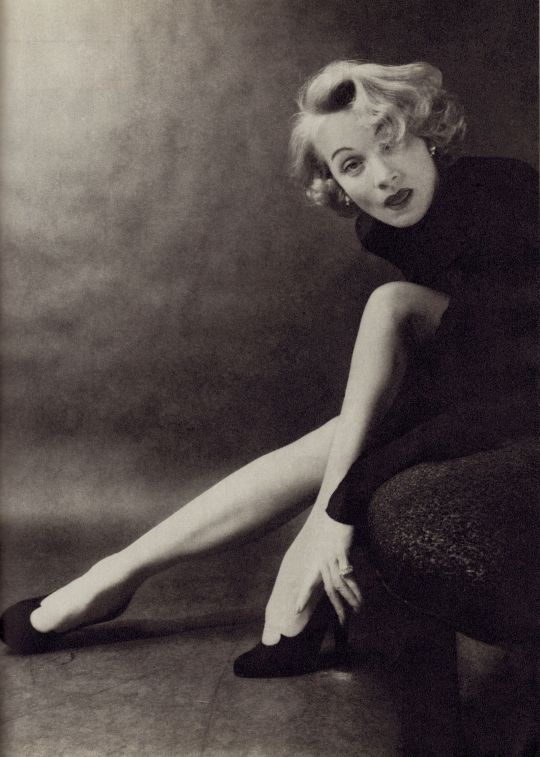
"The bar scene in Morocco awoke something in me and ultimately changed my gender"
youtube
"Her manner, the critic Kenneth Tynan wrote, was that of ‘a serpentine lasso whereby her voice casually winds itself around our most vulnerable fantasies.’ Her friend Maurice Chevalier said: ‘Dietrich is something that never existed before and may never exist again.’”
"Songstress, photographer, fashion icon, out bisexual phenom (notoriously stole Lupe Velez and Joan Crawford's men, and Errol Flynn's wife, had a torrid affair with Greta Garbo that ended in a 60-year feud, other notable conquests including Erich Maria Remarque -yes, the guy who wrote All Quiet on the Western Front- Douglas Fairbanks Junior, Claudette Colbert, Mercedes de Acosta, Edith Piaf), anti-Nazi activist. Marlene was a bitch - she had an open marriage for decades and one of her favorite things was making catty commentary about her current lover with her husband, and her relationship with her daughter was painful- but she was also immensely talented, a hard worker, an opponent of fascism and the hottest ice queen in Hollywood for a long time."
youtube
"She can sing! She can act! She told the Nazis to fuck off and became a US citizen out of spite! She worked with other German exiles to create a fund to help Jews and German dissidents escape (she donated an entire movie salary, about $450k, to the cause). She looks REALLY GOOD in a suit. If you're not convinced, please listen to her sing "Lili Marlene". Absolutely gorgeous woman with a gorgeous voice."
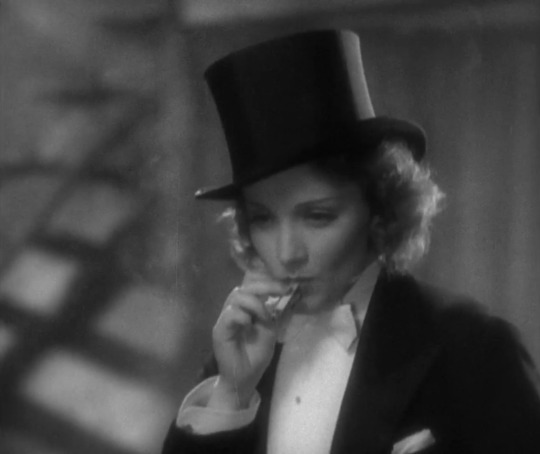
Gifset link
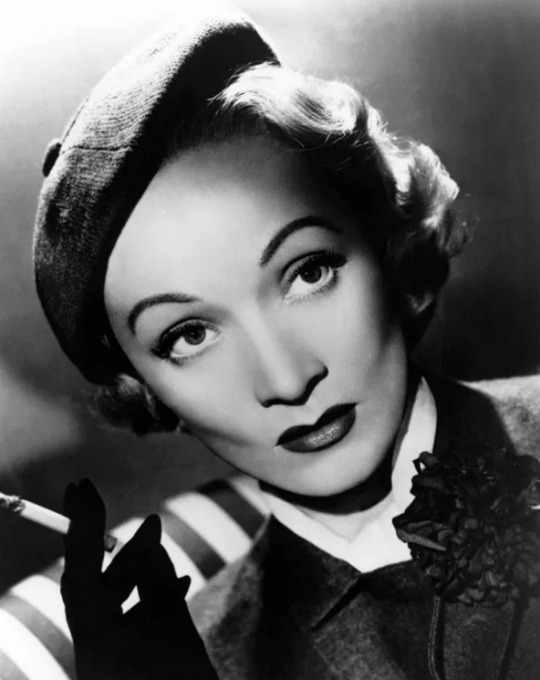
"Bisexual icon and Nazi-hater. Looks absolutely stunning in the suits she liked to wear. 'I dress for the image. Not for myself, not for the public, not for fashion, not for men'."
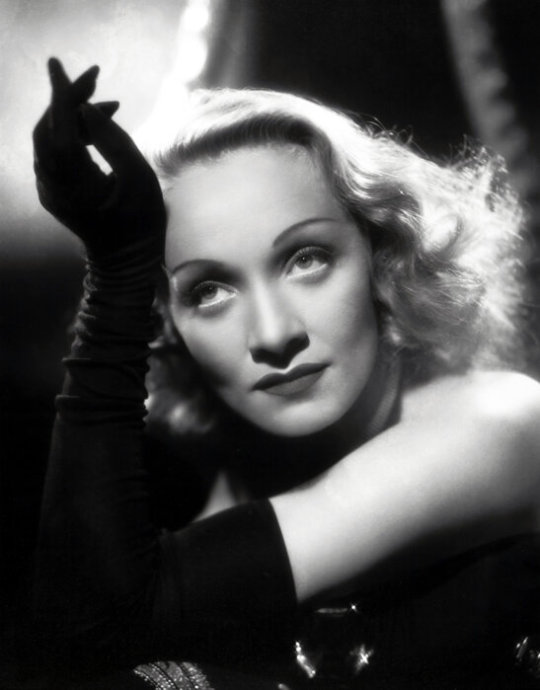
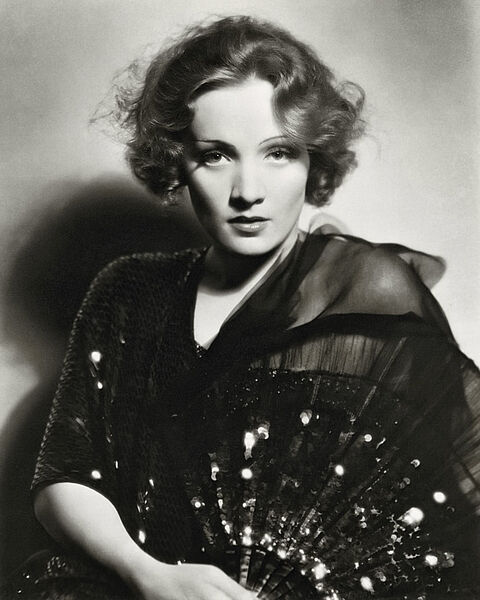
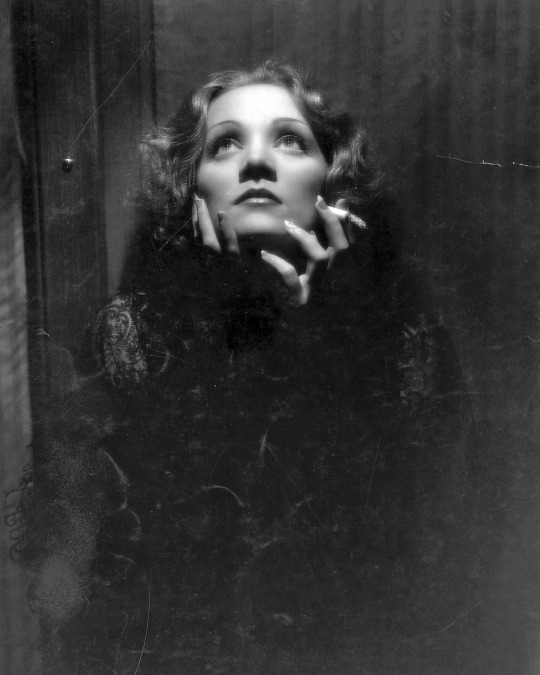
"Did a bunch of humanitarian work during ww2, pretty sure a shot of her from Shanghai express was the inspiration for one of queens album covers and also her in the suit in Morocco (1930) CHANGED LIVES. I’m sure she’s already been submitted but I wanted an opportunity to submit one of my favourite pictures of her for the poll"
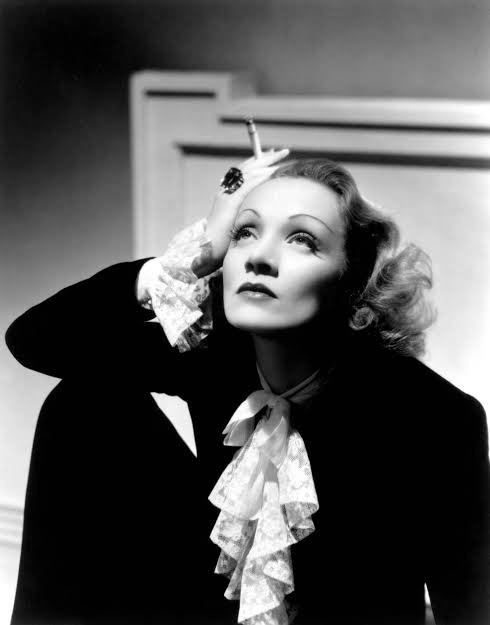
"would you not let her walk on you?"
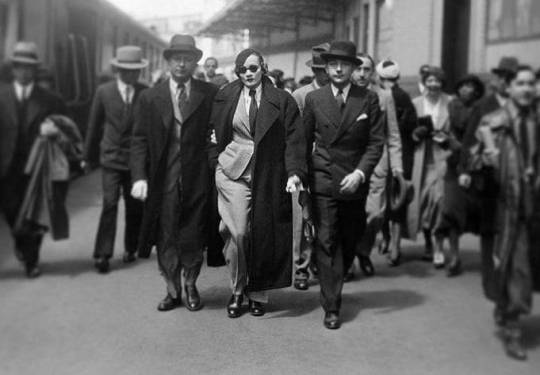
155 notes
·
View notes
Text
okay so please don’t be mad 🥺👉🏻👈🏻
1. im going thru Big Major Life Thing (a good one) which is why i’ve been so MIA
2. my brain has latched onto a new hyperfixation that has ~TEMPORARILY~ hijacked all of my attention & writing inspiration that i tragically must get out of my system before i hop back to mtry 🫣 my writing abilities hinge entirely on the current whims of my anxious monkey brain, and right now it only wants to write about this
3. sooo on that note…is anyone here a critical role fan…? 😅 mighty nein? caleb x essek?? anyone?? if not i’m reallyyyy sorry in advance for all the shit im about to spam my blog with, feel free to block the tag lmao. (im like 10 years late to this fandom)
4. probably gonna post a short thing i wrote tomorrow…yaaay 🫠
5. im also about to spam reblog all the spideytorch art i missed cuz HOLY SHIT THERES A LOT
6. i love you pls don’t hate me 🫶🏼🫶🏼🫶🏼
#IM SORRY#ITS NOT MY FAULT#ITS MY BRAIN#IM MENTALLY ILL#AND IN THIS DAY & AGE I GOTTA PUT ME FIRST#AND WRITE THE SHIT THAT MAKES ME HAPPY#really hope there are at least a few of you out there in this fandom 😅#eep 🥴
19 notes
·
View notes
Text
'bard's lament' this 'bard's lament' that'.. it was a pretty solid episode like pls.. all the pieces are on the board. things are lined up. things can and probably will still Happen. like rip to season 3 finale haters but im different lol. it seems SO hilariously dumb to even say anything about characters being ooc, things not happening as they 'should' or whatever tf like..... this very much unlike other IPs. some complaints simply can't apply. the people who play these characters actually personally OWN and wrote them in the first go around. and not only do they understand their characters intimately, they are doing what makes the story flow better in a new medium. which is not to say they are chopping down what's really important, they are actually condensing 4 hours of dice rolling and dick jokes into something coherent and less than half an hour long. they are making it work. and it is working. it's not perfect and i actually really do get some people's disappointment in some choices, but lbr some of them are 1) completely understandable when you take everything Critical Role is into account (kash, for one. i mean i wasn't too happy about it too but i do get it) and 2) things that are not resolved or can be further developed in the future (bard's lament can still happen, in some way; i can already come up with like, three ways -hehe nice-- it could happen in s4). i mean this is fucking season 3, hasn't all of this been said a thousand times over by now? seems pretty weird people are still doubting and not trusting these storytellers know what they're doing. like not only does the og campaign still exist as its own thing but also enjoying an adaptation for what it is is entirely possible. also? having fun is allowed and recommended, i mean, jesus christ
#the legend of vox machina#lovm s3#lovm spoilers#i forgot logging into this HELLSITE and scrolling through tags was a nightmare. like i get the frustration#i get expecting something and being underwhelmed. but at certain point you gotta learn to let some things go and enjoy the ride#and some of yall need to chill#i want bard's lament too but the way they did everything really honored kaylie and their relationship as a family if u ask me#imo that's more important than scanlan's anger. and it would make bard's lament even more impactful if it were to happen in s4#ANYWAY WHO CARES KEYLETH AND VAX KISSED A BUNCH OF TIMES AND HER EARTH FORM KICKS ASS SO IM WINNING
15 notes
·
View notes
Text
Jjk 261 leaks ahead:
Alright I was going to post about this in the morning but I got distracted and needed time to process everything anyways.
I don't usually share my thoughts on the new chapters publicly but I will make an exception now 😔.
Yap incoming
ok, so there were a lot of theories floating around before 261 about if we would actually be getting a gojo comeback or not. Honestly, some people pointed out why gojo reviving might not be the best decision for the story, but I was placing bets on it anyways because I too was pretty bummed by his end and also because my naive self chose to believe it was the most likely choice for gege to make.
However I did try to keep my hopes reasonable, choosing to belive that it could just be a hallucination.
Truthfully, I didn't think it would be Kenjaku. I'd seen the theory that it could be them but I honestly doubted gege would do that. Yet in the depths of my copium filled soul I had always been holding onto the hope that kenjaku would somehow return to the story. When I tell you my secret little stash of cope was as potent as some gojo fans im telling the truth 😭.
I honestly hoped maybe it would be kenjaku, just maybe. This morning I sought out the leaks and you know what I saw? This:
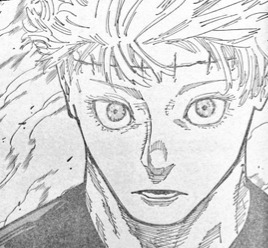
I was DYING. For a second I thought gege had really done, I was in disbelief, I was in shock, I briefly wondered if this was a joke.
AND THEN I WAS SO HAPPY. I was like: Yes! Answers! Yuji-kenjaku interactions! An unexpected twist in the fight! Forget the logistics of how kenjaku ended up in Gojo's body, I was going to trust gege's cooking and enjoy the chapter before taking a step back and critiquing anything.
And then I read that it wasn't kenjaku. It was Yuta using kenjaku's ct.

I didn't want to belive it could be Yuta. Of all the outcome I thought it CANNOT be Yuta. Not possibly. BUT IT WAS. IT WAS YUTA.
I have felt emotional when consuming media before, and sometimes underwhelmed or critical when something didn't rub me the right way, but I'd never understood people who act so utterly devastated by an author's decisions.
I UNDERSTAND NOW.
I've been mourning all day man 😭. My gojo cope, my kenjaku cope, all of it down the drain just like that AND ALL AT ONCE. I genuinely am not sure what about this chapter gas prompted such emotion in me. Am I lobotomized after all? I choose to belive its the sheer shock of this chapters events.
Tbh, I read the rest of the chapter in a bit of a daze and I'd have to go back and look over it again to share any actual thoughts or analysis, but I will says some other things stood out at me about it.
first of all, I don't hate Yuta. He's not my favorite character but I don't hate him and I wish the best to you yuta fans, however yall are feeling. his line about how the others are so worried about becoming monsters, unknowing that they've forced that role onto gojo all this time hit pretty hard for me. And now Yuta is taking on the same role since gojo's gone. He's strong and is not just taking Gojo's body but in a way taking on his position as the 'monster' of the jujutsu world, even if only for the dubious amount of time he had left.
Also the way sukuna just, punches yuji aside 😭. Nahh. The disrespect. He rlly just sees yuta in gojo's body and tosses yuji away. Rlly hope my boy beats him up next chapter and it doesn't become a yuta-one-man-show.
Overall I'm dying, I'm crying, I'm gritting my teeth, I miss kenjaku, I miss gojo, rip yuta 😭
(Please gege give me my wife back. Even just a kenjaku flashback is enough. Gege pls.)



#Sorry for yapping#jujutsu kaisen#jjk#kenjaku#jjk kenjaku#jjk leaks#chapter 261#jjk chapter 261#Jjk spoilers#yuji itadori#yuta okkotsu#gojo satoru#sukuna
14 notes
·
View notes
Note
Hello!! I was wondering if I could please get a level 3 pack for Akiko Yosano from BSD? Thank you so much, please take your time!!

Hereee u gooo hope its up to urr expectationsssss and it might be Slightly rushed which im sorry we've been really busy trying to do rq as much as we can so pl don have to waitt -💊

Name(s): Akiko Yosano
Nickname(s)/Title(s): "Doctor" "angel of death" "angel"
Pronoun(s): She/her
Age: Late 20s/Early 30s (exact age not specified), 25, might regress to 11
Gender: Female, demi-girl, genderfluid agender, intersex
Sexuality: Heterosexual, lesbian, ace,
Species: Human
Role: nurse, Doctor, soother. caretaker
Source: Bungou Stray Dogs manga/anime series
Emoji sign offs: 🐕💉🏥👩⚕️🐾💖��📚✍️🎶
Front triggers (pos/neg/neu):
Positive: Medical topics, dogs, helping others
Negative: Violence, cruelty to animals
Neutral: Everyday conversations
Likes/dislikes:
Likes: Dogs, medicine, reading poetry, Wagashi (Traditional Japanese confectioneries), Shopping, Drinking alcohol, Reading poetry and literature, Dogs , Medicine and medical procedures, Obits and news about tragic events, Beautiful scenery and landscapes, Social activities and parties, Fashion and clothing, Helping others and saving lives, Solving mysteries and puzzles, Reading books, especially poetry collections
Dislikes: Cruelty, injustice, Chauvinism and sexism, Meaningless deaths and killings, People who don't value human life, Being confined or restricted, Authority figures trying to control her, Minor injuries that she can't heal with her ability, Being alone or isolated, Failure in her medical duties, Disrespect towards her profession, Cruelty to animals, Injustice and unfair treatment , Being underestimated due to her gender
Personality: Akiko is a compassionate and intelligent doctor who specializes in treating supernatural injuries. She is gentle and caring, especially towards animals. As a skilled surgeon, she remains calm under pressure and thinks clearly in emergency situations. Despite her professional demeanor, she has a soft spot for poetry and literature. She carries herself with grace and dignity, priding herself on being both a strong woman and a capable doctor, She is a feminist who believes in equal rights for men and women, and doesn't tolerate belittling comments about her gender or profession ,She is generally calm and composed, but when angered, she becomes quite intimidating and can be sadistic in her retaliation, She has a dark side, with a penchant for the morbid and gruesome. She finds joy in dissecting patients and healing them afterwards, She is highly perceptive and observant, often making insightful comments during briefings and missions ,She values human life greatly and is strongly opposed to meaningless deaths and killings , She has leadership skills and can take initiative in critical situations , On casual days, she has a fondness for shopping and social activities
Typing Quirk: Uses medical terminology occasionally in casual conversations
Faceclaim:



Extra: Has a special ability related to healing called "Thou Shalt Not Die"
Hex code: #FFC080 (a warm orange color reminiscent of medical scrubs)

#alter packs#build a headmate#headmate pack#alter creation#alter pack#build an alter#headmate creation#build a system#willowgenic
1 note
·
View note
Note
who is your favorite critical role character from the Mighty Nein and why?
So I’m still a new crit role fan (only been watching for a year) and I started with Bell’s Hells (pls don’t ask what ep im on) 😅 and i’ve only seen a couple Mighty Nein eps but if i had to pick I’d say maybe Yasha (because Ashley) but i also like Molly and I think Fjord is really cool but that might change the more I watch it if I ever get round to it 💀
0 notes
Text
forgot to mention my thoughts lol
SO much better than QP2 (what even was that movie)
more emotional (to me) than QP1 which is not a critic because i adore qp1 and also cry very hard at qp1
alex wolffs (rueben) death scene was like super cliche predictable but i love alex wolff so it just made me giggle
lupita nyongo you are amazing and i love you as always but pls stop squeezing that cat omg (ik its an actor but omg) i liked when she looked at the cat looking at smth behind her and got scared bc thats such a cat owner thing to do lmao
cool to see joseph quinn in a more serious role he did so good actually. couldnt figure out his character’s whole thing ? i think it was just anxiety but it seemed to only come up when the plot needed it lol (being quiet in the subway water scene and the ending around the cars)
cat was the best part (i love this fucking cat) but as stated in the thread it made me so anxious the entire movie HAHA but im so glad it didnt die and i was not expecting to be so emotionally connected to a fucking cat
im actually so fucking glad they used a real cat insted of cgi-ing it i cannot stand cgi cats (captain marvel)
uh i reallllly liked sam and erics whole duo thing they work really well together and im really glad it wasnt a romantic thing. just their reluctant caring for each other in a not enemies-friends thing but more of a ‘i might as well help u i guess’ kinda thing
also im kinda glad they used new characters instead of john krasinski and the family (even tho i love johns character) but im very good on this one it was super well done idk
people were probably mad that they didnt expand on the monsters but idrc anymore because qp is so good at doing character stories and im here for it (them switching jackets at the end made me sob and the fact it was her dads jacket too omfg)
also this is just a really pretty film (the soundtrack is amazing) the visuals and cinematography are so good i wasnt expecting it,, the jazz bar scene w the magic trick? beautiful. tears were pouring
overall a really different vibe from qp1-2 which i cant describe but i really enjoyed it and i think more ppl should talk about and watch it bc i havent seen anything lol.
alex wolff looks so different with a beard im watching quiet place day one and only recognized him from his mole
#it really highlights a film with how little dialogue u can get away with and still be emotionally impacting i think#idk why i make movie review rants like this i promise im not a film critic#also what were those fucking egg food things and where did the come from#a quiet place#a quiet place day one#kats movie rants
5 notes
·
View notes
Photo


this is watch mojo dot com and were counting down the top ten caleb widogast mome
#critical role#caleb widogast#beacon#mighty nein#soc art#can u tell im figuring out a new pen#nicco rol u have served me well but I have to spread my wings pal#still tryna get a feel for this style/ technique so pls excuse me if i delete this#its a bit plain but HMMM we'll see#anyway how rad was this bit tho
1K notes
·
View notes
Text
Dont mind me, im just imagining essek walking in on yasha giving caleb an old fasioned greatsword shave and being infinitely confused as he only barley gets the concept of shaving... but there must be an easier way to do this???
#he only gets mildly less concerned when he is told: no we usually use special blades we make specifically for dragging across our faces#im new to cr fandom so pls excuse me if this has been done before#critical role#critical role essek#caleb widogast#oh look i said something
73 notes
·
View notes
Text
i finally finished c2e8 and I am absolutely smitten with pumat sol. literally chin on hands heart eyes thru that whole shopping sequence 😻
#critical role#if he ends up being a baddie i will be crushed#im new here pls no spoilers ty#c2#c2e8
9 notes
·
View notes
Text
Hey tossing this out there in case any of my followers watch critical role but:
Is the second campaign ending soon?? I got into it a few months and have been watching slowly but am a little sad that I might not be able to catch up before it ends :(
#anon speaks#Critical Role#Mighty Nein#im sorry for those wanting posts about any new episodes but im just Curious dhdhdh#i just finished episode 44 and i went to see what ep its currently on#136#went to check campaign 1#that had 141#so im afraid campaign 2 is wnding sokn#so if anyone has any idea or insight for me its be appreciated!!#oh but no spoilers pls :)
4 notes
·
View notes
Text
Hi! I’m Robin.
I’ve been a CR fan since a few months before C1 ended. I fell behind for a bit, but caught up and started watching live again recently. And it reminded me that I truly enjoy watching this show live. I get to share all of my laughs and excitement with other people and see how everyone else is reacting.
So… I made this. I figured a good time to hop into interacting with the fandom would be between campaigns. I’m looking forward to it. <3
4 notes
·
View notes